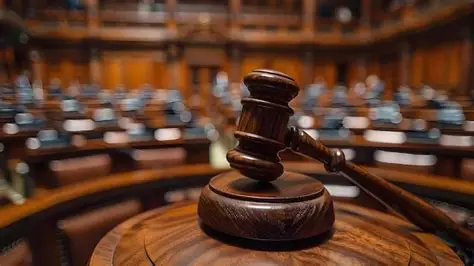A new legal showdown is escalating in Illinois after a redistricting plan backed by Trump-aligned Republicans faces constitutional scrutiny. Filed in federal court this August, the lawsuit challenges the legality of the new district map, which opponents claim dilutes minority voting power and heavily favors GOP interests.
The Illinois State Board of Elections has acknowledged receiving formal objections from advocacy groups and legal coalitions. The case could reshape the state’s political landscape ahead of the 2026 midterms and test the boundaries of partisan gerrymandering in a post-2020 census environment.
Supporters of the new map say it reflects recent population shifts and complies with legal redistricting standards. Key Trump-affiliated lawmakers in Illinois argue the move rebalances representation in rural and suburban regions, which they say have been marginalized for decades under Democratic-led legislatures.
Republican strategists view the redistricting as a key tool in building momentum ahead of national elections. “We’re correcting the imbalance created by years of one-party control,” said an aide to a senior GOP state senator. Legal experts predict the courts may need to evaluate whether the new map adheres to the Voting Rights Act and the Equal Protection Clause.
Multiple civil rights groups have filed lawsuits alleging the redistricting undermines minority voting strength in urban areas like Chicago and East St. Louis. The plaintiffs argue that the redrawn boundaries divide communities of color and violate both state and federal protections.
Legal filings cite data showing significant shifts in district boundaries that split Black and Latino populations. Advocacy organizations, including the Illinois NAACP, claim the new lines could suppress voter turnout and political engagement in historically disenfranchised neighborhoods. A ruling could establish new legal precedent on racial equity in redistricting.
As the lawsuit proceeds, Illinois election officials face mounting pressure to prepare for potential changes before the next voting cycle. County clerks and election boards have raised concerns about ballot design, voter confusion, and logistical costs if the courts require a redraw of the map before 2026.
Some legal analysts suggest the court could allow the map to stand temporarily, while ordering long-term revisions. If the challenge succeeds, Illinois may need to conduct off-cycle district realignments that complicate political strategy and campaign financing.
This legal battle in Illinois reflects a wider trend of aggressive redistricting tied to national party strategy. Trump-aligned political movements across several states have intensified efforts to influence state-level power through redrawn maps. The Illinois case could shape judicial attitudes on partisan gerrymandering in the post-Trump political era.

